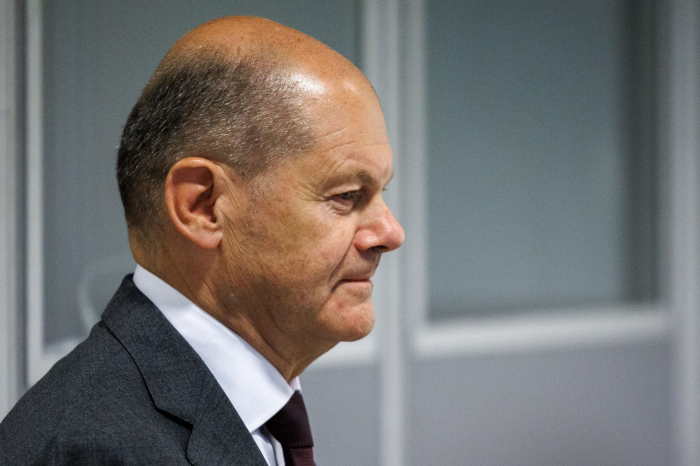Chancellor Olaf Scholz was supposed to come to the Polish capital bearing gifts to salve the wounds left by German wartime depredations.
But on Tuesday, the German leader failed to announce an expected proposal to financially compensate still-living Polish victims of Nazi crimes — complicating an effort to warm ties between Berlin and Warsaw.
Germany will “endeavor to provide support for the victims,” Scholz said at a press conference alongside Polish Prime Minister Donald Tusk, without providing concrete promises or details on when such compensation might be expected.
In the lead-up to the visit, German officials said they expected Scholz to announce a plan to compensate surviving victims of Nazi Germany as part of a broader effort to mend long-strained ties. The countries’ relationship sharply deteriorated under the former Polish government, which was ruled by the nationalist Law and Justice (PiS) party.
Germany was a favorite target of the PiS government, with the party’s leaders demanding Berlin pay more than €1 trillion in war reparations. Germany rejected those demands, calling the matter “closed” due to a series of postwar agreements.
The current Polish government has dropped the reparation demands, but Foreign Minister Radosław Sikorski had called on Germany to find a “creative solution” to compensate the Polish people for their suffering.
But late on Monday, there were signs the compensation announcement might be put off, as negotiations between both sides dragged on until late in the evening.
Officials inside the German coalition government, which is currently stuck in difficult budget negotiations, had reservations about the size of any financial commitment — and concerns it could trigger further claims for compensation by other countries occupied by Nazi Germany, including Greece, according to two persons familiar with the German position who were granted anonymity to discuss sensitive negotiations.
It wasn’t immediately clear whether the German side had been unable to provide a concrete proposal, or whether Warsaw rejected the German proposal as insufficient.
Either way, the failure to announce the compensation plan is humiliating for both leaders, who intended to use the visit to mark a new, more cooperative chapter in relations between the countries. It also opens Tusk to intense criticism from right-wing populists at home who demand reparations from Germany.
In the end, the joint action plan said the two governments would remain “engaged in an intensive dialogue on measures to support the living victims of the German aggression and occupation between 1939 and 1945.”
Tusk attempted to portray that dialogue in a positive light, even as he’s facing attacks from his political opponents at home.
“I’m not disappointed,” he said of the failure to reach an immediate compensation deal. “These are all steps that go in the right direction,” he said. “The future will show whether my expectations and hopes are based on solid foundations.”
PiS, now in the opposition, denounced the failure to get Germany to pay up.
“Scholz has treated Poles in a degrading manner, and Tusk is still happy about it,” former PM Beata Szydło posted on X.
Tusk has made repairing relations with Berlin a key part of his effort to return Poland to the European mainstream. But 79 years after the end of a war that killed as many as 6 million Poles (half of them Polish Jews), the issue is still a raw wound.
“There is no such gesture that would satisfy Poles, there is no sum of money that would offset all that happened during World War II. And here there is no dispute between us either,” Tusk said.
More about:
















































